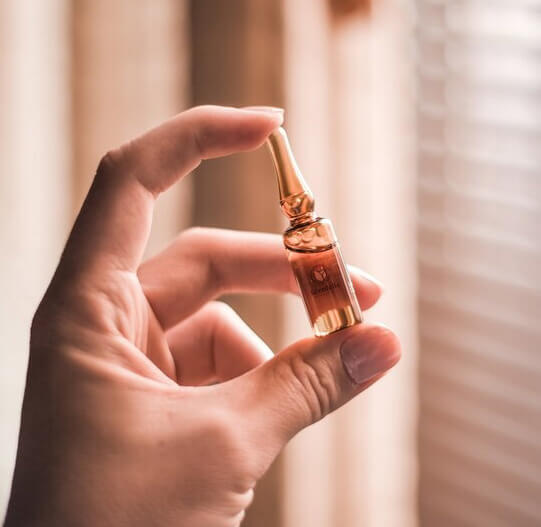

Aromatherapy, the practice of using essential oils and fragrance oils for therapeutic purposes, has been used for centuries to promote health and well-being. While its roots are ancient, modern research continues to validate its effectiveness, confirming what many people have experienced firsthand: scent has the power to heal.
According to a study published in PubMed Central (PMC5198031), the effects of aromatherapy on human health are profound, impacting everything from mood regulation to stress reduction and even physical health. In this article, we explore the scientific basis for using fragrance oils in aromatherapy and how you can harness their therapeutic benefits in your daily life.
The study emphasizes that aromatherapy is not just about scent—it is a multisensory experience. It engages not only the olfactory system (the sense of smell) but also affects other senses, such as touch (via massage or skin application) and hearing (through soothing music or sound therapies often used in tandem with essential oils).
When fragrance oils are inhaled, the scent molecules travel to the olfactory receptors in the nose, which then send signals directly to the brain. This direct connection to the brain makes scent a powerful tool for influencing emotions, cognition, and even physical responses in the body. The study found that aromatherapy affects the limbic system, the area of the brain that controls emotions, behavior, and memory.
One of the most well-documented benefits of fragrance oils and aromatherapy is their ability to reduce stress and alleviate anxiety. The research highlights how certain essential oils, such as lavender, bergamot, and chamomile, can activate the parasympathetic nervous system, which helps calm the body’s fight-or-flight response. This leads to lowered heart rate, reduced blood pressure, and an overall sense of relaxation.
Lavender, in particular, is noted for its sedative effects and is widely used to help manage insomnia and sleep disorders. The study references several clinical trials where patients who were exposed to lavender essential oil experienced a significant reduction in anxiety and improvements in sleep quality.
Fragrance oils have been shown to have a significant impact on mood regulation. Citrus oils like lemon, orange, and grapefruit are commonly used for their uplifting and energizing properties. The study highlights that these oils can help boost serotonin levels, a neurotransmitter associated with mood regulation and happiness.
In fact, the research suggests that certain citrus oils can act as natural antidepressants, helping to combat feelings of depression and sadness. When inhaled, these oils can stimulate the brain’s production of serotonin and other mood-regulating chemicals, leading to improved emotional well-being.
Aromatherapy has also shown promising effects on cognitive function, particularly in enhancing memory, alertness, and concentration. Essential oils like peppermint, rosemary, and lemon are commonly used to improve focus and mental clarity.
The study discusses research where participants who were exposed to peppermint essential oil showed improved cognitive performance in tasks requiring attention and memory. The scent of rosemary, in particular, was found to enhance working memory and increase mental alertness, making it an excellent choice for students or professionals looking to boost productivity.
The therapeutic potential of fragrance oils extends to pain management as well. According to the study, certain oils have been found to reduce the perception of pain and discomfort. Peppermint and eucalyptus oils, for example, have analgesic (pain-relieving) properties that can help ease headaches, muscle soreness, and joint pain.
The research supports the use of peppermint oil for headache relief. Inhalation of this oil has been shown to reduce the intensity and duration of tension-type headaches. Additionally, the topical application of diluted eucalyptus oil can help soothe sore muscles and reduce the inflammation associated with joint pain.
Aromatherapy can also play a role in supporting the immune system. Essential oils like tea tree, eucalyptus, and lemon have antibacterial, antiviral, and antifungal properties. The study points to the use of these oils in helping to reduce the risk of infections and support respiratory health.
Inhalation of eucalyptus oil, for instance, has been shown to help clear nasal passages and improve breathing during colds and respiratory infections. Tea tree oil is widely known for its antimicrobial properties and is often used to treat skin infections, acne, and fungal conditions.
Now that we’ve explored the research-backed benefits of fragrance oils, how can you incorporate them into your daily life? Here are some simple ways to enjoy the therapeutic effects of aromatherapy:
Aromatherapy is much more than a pleasant-smelling indulgence—it is a scientifically-supported therapy with numerous health benefits. Whether you’re looking to relieve stress, improve mood, enhance cognitive function, or boost your immune system, fragrance oils offer a natural, holistic approach to well-being. As the research continues to demonstrate, aromatherapy provides a powerful, multisensory experience that taps into our body’s natural healing mechanisms.
By incorporating fragrance oils into your daily routine, you can harness the therapeutic potential of scent, improve your overall health, and experience the many benefits of this ancient practice in a modern world.


